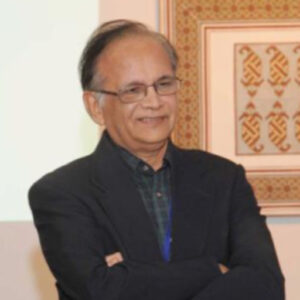
Professor Anwar Ali Siddiqui
Consultant Research & Development
Professor, Anwar Ali Siddiqui
BSc (Hons.), MSc, MPhil, PhD (Biochemistry)
Professor Anwar Siddiqui is a distinguished Pakistani academic who has played a major role in developing research in Pakistan. Over 35-years in his capacity as one of the first Faculty at Aga Khan University (AKU), he laid the foundation of teaching and research in the Basic Sciences. He served as Director, Research Office of AKU, as well as the Associate Dean for Research. He also laid the foundation of the AKU PhD program in Health Sciences.
Dr. Siddiqui received his PhD in Biochemistry from Queen’s University of Belfast, Northern Ireland, UK in 1981 and became Professor of Biochemistry, Department of Biological and Biomedical Sciences, AKU in 2001. His major scientific contributions include renal stone matrix proteins and their role in urolithiasis and Hepatitis C and cytomegalovirus viral and host factors in disease complications. Dr. Siddiqui has been a member of numerous professional associations including being a member of the Executive Board of ICCS, HEJ, PMRC, University of Karachi and Institutional Review Board of Dow University of Health Sciences. He has been a member of the planning committee for the Asia Pacific Rim on Research Integrity. Dr. Siddiqui was the recipient of AKU Faculty Development Award, Research Programme at Harvard Medical School, Boston, USA (1989-90) and the Outstanding Teacher Award, AKU, Pakistan (1996).
Prof. Siddiqui has been an active teacher of postgraduates and numerous Masters and PhD students have received their degrees under his supervision. He has taught AKU medical students throughout his career of over three decades. He has organized and facilitated workshops on ‘Research Proposal Development’ for several organizations including PMRC, HEC and the British Council, Pakistan. In the domain of research administration, Dr. Siddiqui’s major contributions include establishment of the Aga Khan University’s Research Office, designing and operations of Biosafety level 2 and 3 Research Laboratories and a Cancer Tissue Biobank, development of various research governing and monitoring policies, TORs including Ethics Review Committee, grant review processes and policies on Authorship and Intellectual property rights as well as responsible conduct of research and research integrity.
